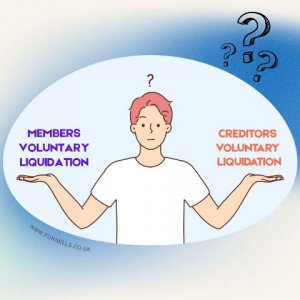Wrongful Trading Insolvency Case Law - Section 214 The Insolvency Act 1986
Wrongful trading is defined by Section 214 of The Insolvency ACt 1986. The following legal case involves the interpretation of facts to see if they fitted the definition of wringful trading.
IN RE CONTINENTAL ASSURANCE COMPANY
OF LONDON PLC
Chancery Division
Park J
27 April 2001
On 27 March 1992 an insurance company, C Ltd, went into liquidation with an estimated deficiency in excess of £14m. As at September 2000, it appeared that the joint liquidators had received in the liquidation about £6.25m and paid out about £5.9m, mostly on professional fees. This was the trial of an application made by the liquidators against eight former directors (two executive directors and six non-executive) alleging wrongful trading and misfeasance. The trial lasted 72 days, during which two of the directors (including one of the executives) settled with the liquidators. The remaining executive director was said to be suffering from clinical depression and, although represented, did not give evidence at trial. The judgments (two of which are reported here as Annexes B and C to the main judgment) are together very long and detailed but in broad terms the issues were as follows.
Wrongful trading
Having traded with modest profits for 5 years, in June 1991 the board was informed of very poor results for 1990 in respect of C Ltd's travel insurance business. After a series of meetings to discover and consider the true implications of the poor results, a board meeting was held on 19 July 1991 ('the Date') when, notwithstanding the disclosure of further heavy losses, the board determined that C Ltd remained solvent and should continue to trade. In reaching this decision, the board relied on a range of considerations, including (i) management accounts to 31 May 1991 which showed net assets of £4.5m ('the Management Accounts'); (ii) forecasts of modest profits and (iii) that attempts could properly and should be made to sell the business C Ltd. In October 1991 a balance sheet as at 30 June 1991 was prepared ('the Balance Sheet'). From December 1991 to late March 1992, attempts were made to sell C Ltd. During that period, Messrs Buchler and Wacey, two licensed insolvency practitioners, were advising C Ltd in the knowledge of and without advising against such attempts to sell. In this application, the liquidators (one of whom was Mr Buchler) made wide- ranging allegations about the poor state of the books and records of C Ltd and alleged that the directors ought to have known by or on the Date that there was no reasonable prospect that C Ltd would avoid insolvent liquidation. The liquidators' grounds changed several times but became that the Balance Sheet and/or the Management Accounts were wrong due to the use and application of inappropriate accounting policies (concerning insurance issues and the provision for bad or doubtful debts) and that the Balance Sheet ought to have disclosed net liabilities of at least £l,101m. It was further contended that (i) the directors ought to have discovered the accounting errors and, thereby, the alleged true financial position; (ii) there had been no reasonable prospect of a sale; and (iii) (as a fallback position) the directors ought to have concluded on or by the Date that the Company was not complying with the DTI's margin of solvency of £l,092m ('the Margin') which conclusion would have caused them to place C Ltd into liquidation at an earlier date. As to the amount of the contribution sought, the court had earlier ruled that the appropriate method of calculation of any liability for wrongful trading was 'the increase in net deficiency' between a hypothetical liquidation on the Date and the actual date of liquidation (see Annex B to the main judgment). On that basis, the liquidators produced seven successive calculations of the alleged increase which ranged from £5.941m to £3.569m (the sum ultimately relied upon).
Misfeasance
First, it was alleged that the directors should make a contribution for misfeasance equal to the increase in net deficiency between the Date and the actual liquidation on the general grounds that (i) the books and records of C Ltd were historically so inadequate that it had been misfeasance on the part of the directors to allow C Ltd to continue to trade with such defective systems; and (ii) they had failed to ensure prior to the Date that appropriate accounting policies had been adopted and applied so as to enable any evaluation of the financial position of C Ltd to be accurate. The liquidators' case was that the non-executive directors had failed to exercise the requisite skill and care as directors in relying on the Management Accounts and other financial information as presented to them from time to time.
Secondly, the liquidators alleged that the directors should pay damages to C Ltd equal to the amount of two specific payments made during January 1992 to IATA and ABTA in the aggregate sum of about £118,000 ('the Payments'). On 20 December 1991 Mr Wacey had advised the board to cease to trade and to stop paying creditors save 'any payments as may be necessary to enhance preserve and/or collect in the assets of the company'. The Payments constituted 20% of C Ltd's liability under certain travel bonds (which had not been re-insured). The directors had been advised that failure to make the Payments would probably lead to the loss of C Ltd's licence. There was a contemporaneous record of the managing director which the judge found set out a clear and convincing case for making the Payments. During cross-examination at trial, Mr Buchler accepted that there had been good reason for the Payments but objected to the fact that they had been made without prior advice from or consent of his staff.
Held - dismissing the application -
Wrongful trading
(1) On the facts, the Balance Sheet had been wrong and, subject to adjustments, ought to have showed that C Ltd was solvent but had a reduced surplus on 30 June 1991 of £1.166m and was accordingly in breach of the Margin.
(2) The Balance Sheet had not been available on the Date. As at the Date, the directors did not possess knowledge of most of the facts which gave rise to the need to make adjustments and such relevant knowledge as they did then possess would have led to an increase in the net assets shown on the Balance Sheet so that C Ltd would not have been in breach of the Margin.
(3) It followed that the liquidators had not established that the directors ought to have concluded on the Date that there was no reasonable prospect that C Ltd would avoid going into insolvent liquidation.
(4) In any event, in June and July 1991 the non-executive directors had not accepted unquestioningly the Management Accounts and other available financial information but had asked questions at the various meetings and had wanted to be satisfied with the answers such that it had been reasonable and proper for them to have relied upon such information and they could not have been expected to have had an appreciation of recondite accounting principles and details peculiar to the insurance industry.
(5) On the evidence, it was not open to the liquidators to allege that the directors had been at fault by including in their reasons for deciding to continue to trade an assumption that there was a reasonable prospect of a sale of C Ltd.
(6) If liability for wrongful trading had arisen, the Court would not have been satisfied that the liquidators' evidence could be relied on safely to support an allegation of an increase in net deficiency, in particular, the liquidator's principal witness on quantum was understandably partisan and could in no way be regarded as an independent expert whose opinion the Court could properly accept as such.
Per curiam:
(a) [106] None of the previous cases in which directors have been held to be liable for wrongful trading has been remotely like this one. Typically they have been cases in which the directors closed their eyes to the reality of the company's position, and carried on trading long after it should have been obvious to them that the company was insolvent and that there was no way out for it. In those cases the directors had been irresponsible, and had not made any genuine attempt to grapple with the company's real position. In the only reported case where the directors did make an effort to understand the position, and where they decided that the company should trade on only after they had thought about it first, the judge refused to hold them liable.
(b) [281] An overall point which needs to be kept in mind throughout is that, whenever a company is in financial trouble and the directors have a difficult decision to make whether to close down and go into liquidation, or whether instead to trade on and hope to turn the corner, they can be in a real and unenviable dilemma. On the one hand, if they decide to trade on but things do not work out and the company, later rather than sooner, goes into liquidation, they may find themselves in the situation of the respondents in this case - being sued for wrongful trading. On the other hand, if the directors decide to close down immediately and cause the company to go into an early liquidation, although they are not at risk of being sued for wrongful trading, they are at risk of being criticised on other grounds. A decision to close down will almost certainly mean that the ensuing liquidation will be an insolvent one. Apart from anything else, liquidations are expensive operations, and in addition debtors are commonly obstructive about paying their debts to a company which is in liquidation. Many creditors of the company from a time before the liquidation are likely to find that their debts do not get paid in full. They will complain bitterly that the directors shut down too soon, they will say that the directors ought to have had more courage and kept going. If they had done, so the complaining creditors would say, the company probably would have survived and all of its debts would have been paid. Ceasing to trade and liquidating too soon can be stigmatised as the cowards' way out.
(c) [378] Before a court will be prepared to impose liability on directors in a case where there has been an unjustified decision to carry on trading, it is not enough for a liquidator claimant merely to say that if the company had not still been trading, a particular loss would not have been suffered by the company. There must be more than a mere 'but for' nexus of that type to connect the wrongfulness of the directors' conduct with the company's losses which the liquidator wishes to recover from them.
The main judgment contains valuable observations on the court's approach to the Question whether and. if so to what extent there should be joint and several liability for wrongful trading [382-391]. The first interim judgment (at Annex B to the main judgment) also gives guidance on the approach to be adopted when assessing the loss (if any) caused by wrongful trading in respect of which directors might be expected to make a contribution.
Misfeasance
(7) The books and records of C Ltd were such that it was possible within a reasonable time to obtain a clear and accurate picture of its financial position at any given moment.
(8) The non-executive directors had not followed blindly the advice of the finance director and auditors but had been in the habit of probing and testing the financial information provided from time to time and it had been reasonable and proper for them to have relied on such financial information.
(9) Even if the directors had been in breach of duty in relation to the accounting allegations, the liquidators had failed to establish that any such breach could properly be said to have caused any particular loss to C Ltd in that, if the increase in net deficiency had been established, it would have been caused by such matters as adverse trading results or heavy expenditure incurred by the liquidators and not by any failure to adopt and apply appropriate accounting policies.
(10) In relation to the Payments, the directors had taken the wholly appropriate step of consulting Mr Wacey, and although they might have expected more positive and clearer advice from him, nevertheless they did their conscientious best to put into effect the advice given and the conclusion that the balance of advantage was in favour of making the Payments was not reached in breach of any duties owed by the directors to C Ltd.
(11) In any event, this was not a preference claim and C Ltd (as opposed to its creditors) had suffered no loss as a result of the Payments having been made.
Per curiam: [399] It is accepted that one of the duties of non-executive directors is to monitor the performance of the executive directors and that the managing director of a company has a general responsibility to oversee the activities of the company, which presumably includes its accounting operations. It is not considered that those responsibilities can go so far as to require the non-executive directors to overrule the specialist directors, like the finance director, in their specialist fields. The duty is not to ensure that the company gets everything right. The duty is to exercise reasonable care and skill up to the standard which the law expects of a director of the sort of company concerned, and also up to the standard capable of being achieved by the particular director concerned.
Source or File Reference : BPIR 2001 Volume 5 Page 733
Additional Pages in Library : 157
Copyright : © Jordans
If yoiu think that you may have "wrongfully traded" contact Purnells Insolvency Practitioners for a FREE INITIA:L MEETING
Would you like us to give you a call?
Fill in the form and we'll give you a call as soon as we can to discuss your needs in a free initial consultation with a Licensed Insolvency Practitioner. Alternatively give us a call on 01326 340579 if there is an urgency to your needs.
The information provided will be used solely to contact you and any information you provide will be held in accordance with our firm's privacy policy, and not used for marketing purposes.






